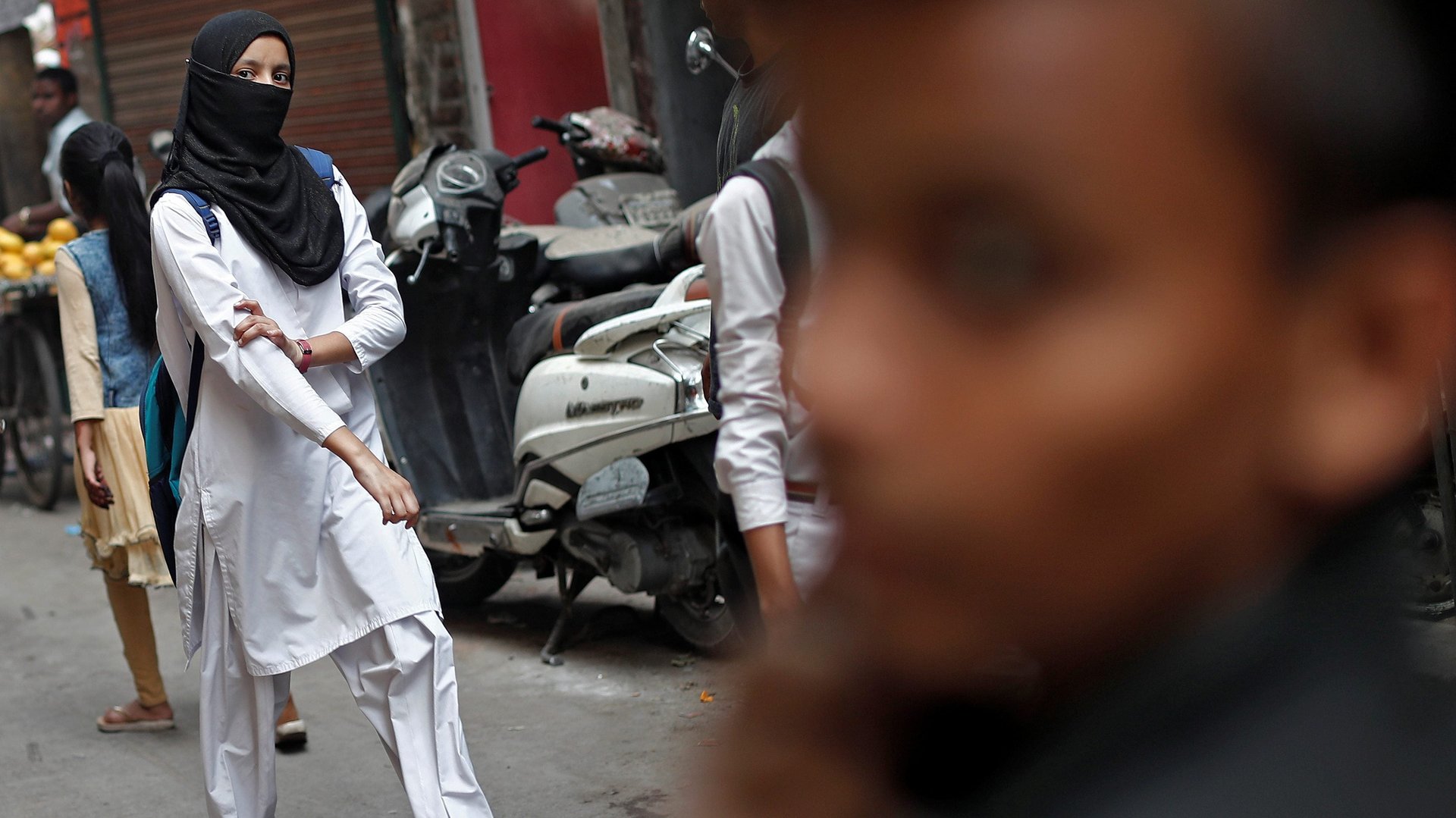What is India’s hijab row all about?
Karnataka’s chief minister Basavaraj S Bommai yesterday (Feb. 9) ordered all schools and colleges to be shut for three days “to maintain peace and harmony,” after protests intensified over the right of female students to wear the hijab.


Karnataka’s chief minister Basavaraj S Bommai yesterday (Feb. 9) ordered all schools and colleges to be shut for three days “to maintain peace and harmony,” after protests intensified over the right of female students to wear the hijab.
The protests began in December 2021, after six Muslim students at Udupi Pre-University (PU) College were asked to remove their headscarves before attending classes, and have become the latest flashpoint in a series of religion-fueled controversies that have, in part, come to define modern India.
How the protests have spread and grown
In December, a photo of six 18-year-old female students sitting in protest on the steps of their school went viral.
According to the college principal, they are allowed to wear hijabs or burqas on school grounds, but not in class. However, this has been more of a convention than a written rule, principal Rudre Gowda told the The Indian Express, “for the past 37 years.”
But the students appear to have refused to remove their hijabs in class, and have been marked absent since Dec. 31 even though they have been on campus every day. “We are not going to budge, no way,” Aliya Assadi, one of the students, told Al Jazeera.
Since December 2021, more women have started showing up at educational institutions across the state to stand in solidarity with the women who were first singled out. Meanwhile more colleges, apparently unsure what else to do, have asked female students to to follow a uniform dress code, which omits the hijab, in order to attend classes.
Some Hindu students have also staged their own protests, heckling young Muslim women and demanding the right to wear saffron-colored shawls if the female students can wear hijabs as part of their Muslim faith.
In another instance, female students wearing hijabs were allowed to enter the PU College in the town of Kundapura, but were made to sit in separate classrooms.
The hijab controversy in Karnataka
But students in Udupi say this controversy is not new. “We made this demand many times last year. But we were told not to voice it,” Shifa, a first-year student, told The New Indian Express. “But all of us have worn hijab since nursery. We feel comfortable in it.”
Since December, the issue has moved beyond school rules. The Karnataka state government, led by Narendra Modi’s BJP, has got involved.
Its order, issued on Feb. 5, said that while there is no prescribed uniform dress code for pre-university colleges, students should adhere to the rules set up by the college administration “to promote harmony and the spirit of common brotherhood amongst all the people of India transcending religious, linguistic and regional or sectional diversities to renounce practices derogatory to the dignity of women.”
Fundamental right to practice religion
The Indian constitution guarantees the right to practice religion freely, and five students have filed a case in the Karnataka High Court to challenge colleges’ regulations, written or otherwise, against hijabs.
The Karnataka state order argues that banning the hijab on campuses does not infringe on the women’s fundamental right to practice religion freely and without bias.
Broadly, private institutions in India, including schools, colleges, and workplaces, are exempt from constitutional mandates because those apply only to the state and, by extension, to state-run institutions. But courts have often taken a more nuanced view based on how much a citizen’s liberty and rights were being infringed upon.
This piece has been updated.